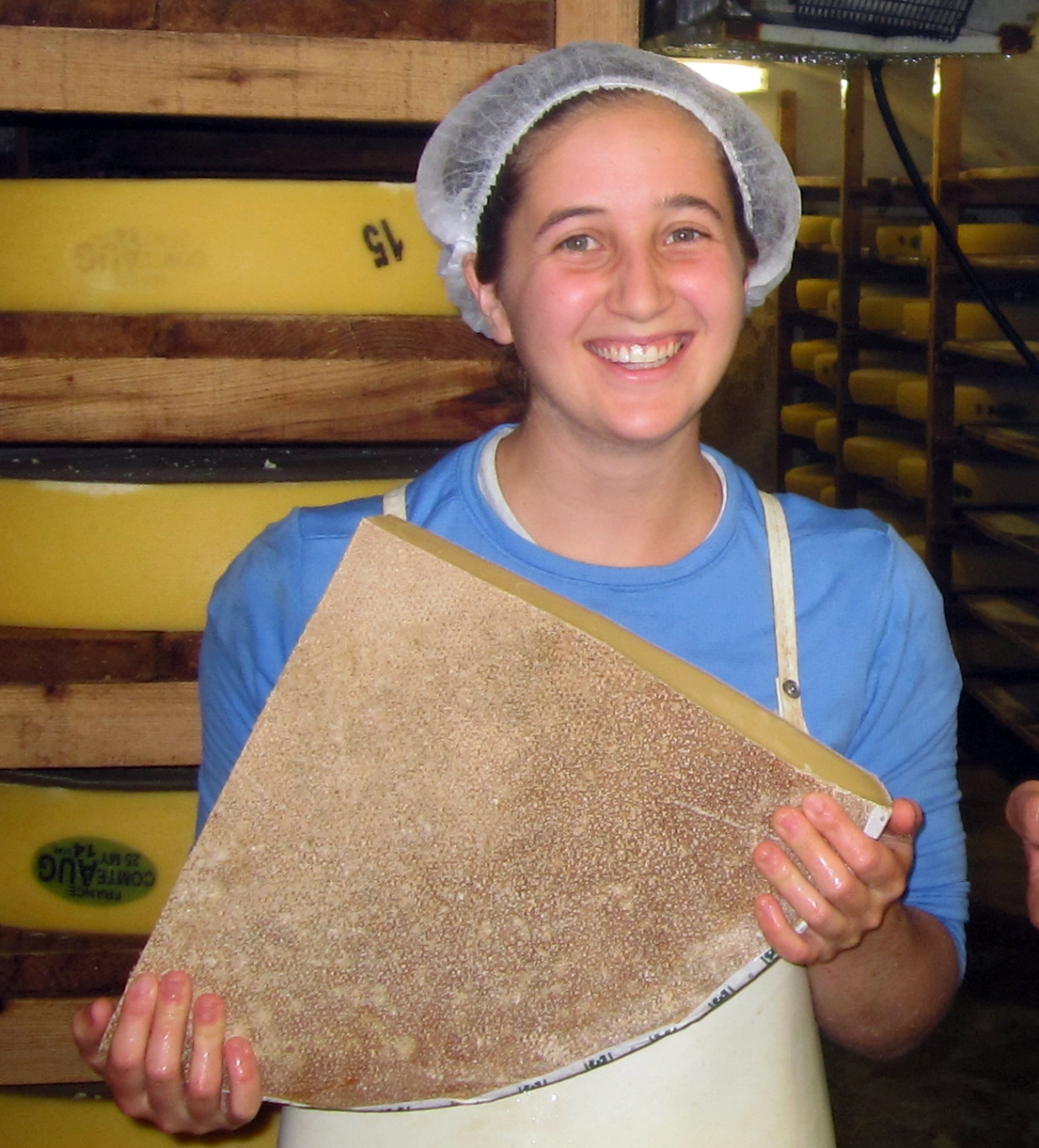Two Middlebury Febs Selected as Watson Fellows
MIDDLEBURY, Vt. – Two recent Middlebury College graduates, Linnea Burnham of Thetford, Vt., and Cathryn Manduca of Rochester, Minn., have been selected as Thomas J. Watson Fellows for 2015-16.
The Watson Fellowship is a one-year grant for purpose-driven, independent study conducted beyond the borders of the United States. Started in 1968, it is a highly sought-after post-undergraduate experience, and both Burnham and Manduca were Middlebury “Febs” who fulfilled their academic requirement in January 2015. Fifty Watson fellows were selected for 2015-16, and each will receive $30,000 for 12 months of travel and expenses.

Linnea Burnham will immerse herself in the lives of artisanal cheesemakers in Italy, Switzerland, England, Norway, Brazil, and South Africa. Her fervor for how cheese is produced, and for how social, cultural, and economic forces shape the lives of the men and women who make it, is a direct reflection of her lifelong interest in local agriculture.
Burnham grew up carrying the grain buckets, feeding the animals, and helping her relatives work on her family’s farm in a rural community on the Connecticut River. Her grandfather talked about how his great grandparents “eked out a living raising sheep on this rocky hillside farm in a remote corner of New England. And as I grew older and more thoughtful,” Burnham recalled, “I was struck by the significance of what it meant for generation after generation to commit to working the same 100-acre parcel of land.”
At 16, Burnham was a Rotary International Youth Exchange student in France – an experience that opened her eyes “to a new food culture with an emphasis on terroir, where the landscape and climate of a particular region link food to place.”
While double majoring in French and history at Middlebury, Burnham interned with the Middlebury FoodWorks Program, completed a self-designed internship with a local maker of goat cheese, worked as an assistant cheesemaker at a creamery in Addison County, and was a comté cheese apprentice at a fromagerie near the France-Switzerland border. She also completed an independent study in the chemistry of cheese by making multiple batches of mozzarella each week to determine how variables influence the textural qualities of cheese.
Burnham’s Watson year will deepen her appreciation of the desire that drives artisanal cheese production in Europe and South America, and will help her understand the relationship between large-scale cheesemaking and the need for sustainable, regional food systems.
Cathryn (Katie) Manduca will pursue her passion for textile arts by traveling in the United Kingdom, Norway, Guatemala, Bolivia, and Turkey during her Watson year. Manduca, who has been making sweaters and scarves for friends and family since she was eight years old, majored in computer science at Middlebury and discovered that her studies allowed her to merge her creative and analytic sides.
Using “generative art,” a branch of computer science that employs algorithms to produce creative work, Manduca asked herself: “Could I make simulated fabrics that produce random braids? Could I force a particle system to simulate a drop spindle? Could I create algorithms that would fill in the gaps in patterns mathematically?”
She designed a computer-science project exploring Celtic knot patterns, and wondered about the historical and cultural significance that went beyond the traditions of different regions. It was a question that could not be answered “without seeing the places and meeting the people to whom these traditions belong,” she realized, and that’s how she came to design a Watson proposal in which she will study the history and evolution of textile patterns across five countries, and work alongside the artisans who carry on those traditions.
Manduca expects that her year abroad will prepare her to be more independent and responsible when faced with new challenges, and give her an opportunity to explore how she would like to use her mathematical skills in the future. “Immersing myself in other cultures and traditions will broaden my perspective and increase my flexibility when problem solving or adapting to difficult situations,” she said. “[My Watson fellowship] will make me a more effective computer scientist because I will be more creative in my approach to analytic problems.”
Thomas J. Watson awardees come from private liberal-arts colleges and universities in the United States. The Watson year is intended to provide fellows with an opportunity to test their aspirations, abilities, and perseverance through a personal project carried out on an international scale.

